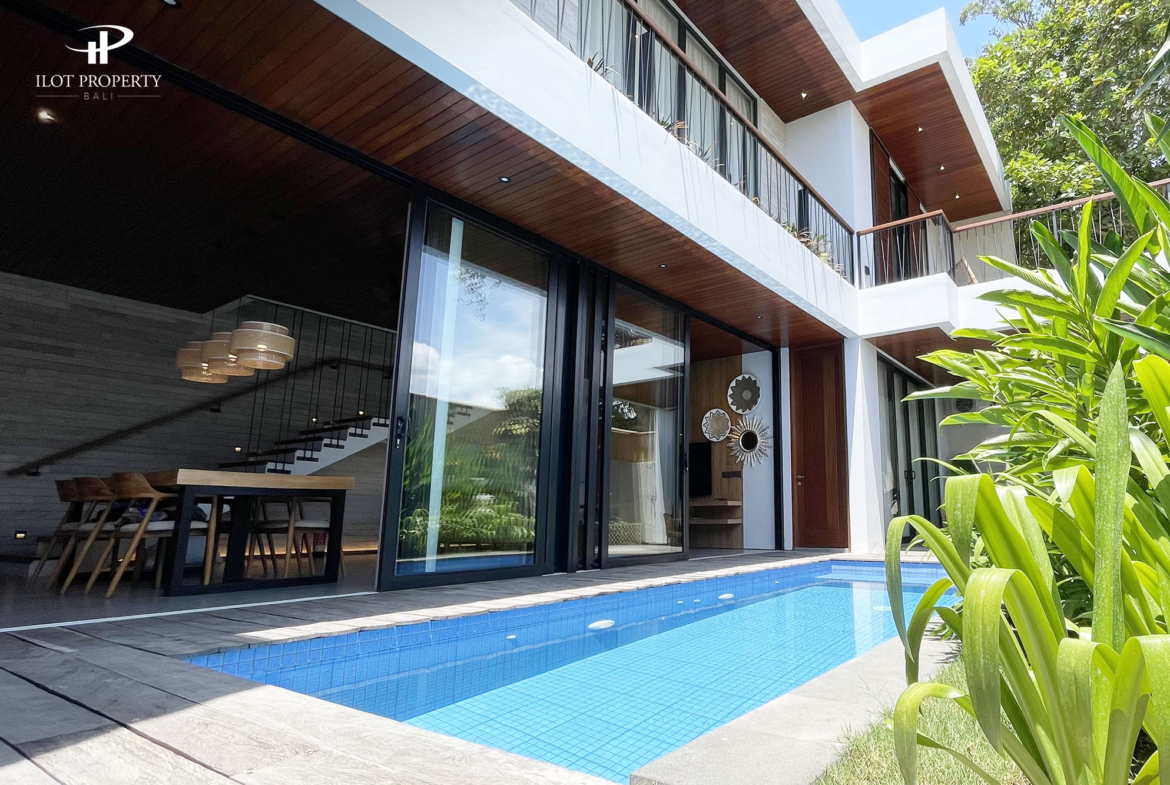Investing in Bali is exciting. Imagine owning a luxury villa with stunning beach or rice field views. You get to enjoy Bali whenever you want, while also earning steady rental income.
But here’s the catch—many investors, especially first-timers, get carried away by the dream and overlook the common Bali investing mistakes. These mistakes can trap your money—or even cause serious losses.
Want to avoid costly problems? Today, we’ll uncover the common Bali investing mistakes many property owners make (often without realizing it), and share practical tips to help you overcome them.
Key Takeaways
- Many investors in Bali make avoidable mistakes such as choosing the wrong property, ignoring legal rules, underestimating cultural fees, or mismanaging rentals from abroad.
- Success comes from working with a trusted local agent who understands zoning, laws, private listings, and community practices.
Explore Best Villa Deals: Available Bali Villa For Sale - Leasehold and Freehold
1. Ignoring Bali’s Legal Landscape
Many overseas buyers fall into trouble because they don’t take time to understand Bali’s property laws. Or worse, they trust the wrong person to handle these permits.
Bali’s property rules are not like what you’re used to back home. Here, foreigners can’t own land directly. You have to pick some alternatives, like Hak Sewa (leasehold) or PT PMA structures.
Best solution: Hire a good agent, local lawyer, or notary.
Each ownership title comes with different legal steps and implications. But if you work with a good agent, they will walk you through all of it, making sure your documents are clean, your setup is legal, and your investment is safe.
Read More: Why Nominee Agreement in Indonesia Is a Risky Bet
2. Ignoring Extra Expenses
Many buyers look only at the price tag of the property and forget about other costs that can quickly add up.
- Taxes: You’ll need to account for transfer taxes, annual property taxes, and in some cases, luxury taxes on high-value homes.
- Upkeep: Bali’s tropical weather means higher maintenance—especially if the property has a pool or landscaped garden.
- Visa fees: Don’t forget the cost of applying for and renewing the right visa to stay legally in Bali.
Best solution: Build a full budget that covers these hidden expenses so you won’t face unpleasant financial surprises later.
You can also learn about the actual price of Bali property in our dedicated article: Cost of Property in Bali: What You Need to Know (2025)
3. Choosing the Wrong Property

Another common mistake? Buying property based on emotion, not data. You might fall in love with the view… but later find out the property sits in a flood-prone area or isn’t zoned for rentals.
Without knowing the local market, it’s easy to overpay or choose a villa in an area that looks beautiful but lacks long-term demand. Even seasoned investors get it wrong sometimes.
Best solutions:
- Know the market: Work with a trusted local agent to compare prices in the area and make sure you’re getting fair value.
- Do your homework: Research the property carefully—check the location, legal status, and long-term investment potential. A solid due diligence process is the best first step.
- Check more than once: Visit the villa at different times of day to notice things like noise, traffic, or neighborhood activity you might otherwise miss.
4. Underestimating Cultural Barriers
It’s easy to overlook the cultural nuances and hidden fees of buying property in Bali. For instance, some villages charge Banjar fees (community fees) that you might not know about.
In some areas, the local village also collects monthly contributions for maintenance. As a foreigner, you might not realize these extra costs until later.
Best solution: Discuss with your local real estate agent.
Again, a real estate agent with strong local ties helps you navigate these cultural and financial challenges. They’ll help you avoid unexpected fees and build relationships within the community, which is key to a smooth investment experience.
5. Not Planning for Bali’s Seasonal Ups and Downs

Sure, Bali is bustling year-round, which is great for rental income. But here’s what you might not know—tourist numbers can fluctuate depending on the season:
- High season: July-August and December-January
- Low season: February-April
If you’re not accounting for these changes, you might be scrambling for cash flow and missing your annual targets.
Best solutions:
- Try offering discounts during the off-season to attract more guests.
- Add some perks like free breakfast or guided tours, or offer longer stays at reduced rates.
- Use social media to draw in travelers who prefer the tranquility of off-peak travel.
- Collaborate with local businesses to create package deals like yoga retreats or cooking classes.
Read More: How to Maximize Your Bali Villa Bookings on Airbnb
6. Overlooking Location Details
Bali might look small on the map, but where your property sits makes a huge difference for both value and daily comfort. Many buyers forget to think about some key factors like infrastructure, zoning rules, and nearby facilities.
Best solutions:
- Look into the condition of local roads, electricity reliability, and internet access.
- Check how close you are to beaches, dining spots, hospitals, and other important services.
- Understand current and future zoning plans. New developments nearby could impact your property’s worth and lifestyle.
7. Managing the Property Yourself (From Abroad)
Managing a rental property from across the world sounds doable—until it’s not. Many investors try to manage it themselves to “save money,” but it often leads to lost income and poor guest experiences.
If you decide to manage the villa yourself, then you have to deal with tenant calls, repairs that pop up, and bookings that fall through. Suddenly, it’s a full-time job you can’t do remotely.
Best solution: Work with a team that offers property management. And, be selective when hiring an agent.
With a good manager, you can relax, knowing your property is in good hands. This means better reviews, more bookings, and a thriving rental business.
Read More: Why Bali Property Investments Fail? Overlooked Reasons You Lose Profit
8. Using a Cookie-Cutter Strategy

Investing in Bali isn’t a one-size-fits-all decision. The mistake is when most investors follow someone else’s plan without thinking through their goals.
Some people are chasing high rental returns. Others want a holiday home they can enjoy with family, and maybe retire to someday.
Best solution: Make an investment strategy that fits you.
Many people (especially first-time investors) are not sure how to make the best investment strategy for themselves. If you're facing the same problem, we're here to help you out.
At Bali Villa Realty, we don’t just help you buy. We help you build a plan that matches your budget, risk level, and long-term vision.
Whether you’re ready to invest today or just exploring your options, we’ll help you move forward with clarity and confidence.

Get a Customized Investment Plan in Bali
With over 15+ years in the market, here’s what we can do for you:
- Find the best location to invest in Bali.
- Reliable guidance on Bali’s property market and laws.
- Personalized strategy to maximize returns and meet your financial goals.
9. Not Thinking Ahead
A common mistake buyers make is focusing only on what they need right now, without considering how their situation may change in the future.
In the end, many people don’t have a proper exit strategy and end up facing losses when unexpected things happen.
Best solutions:
- Check whether the property—and local zoning rules—allow for future renovations or extensions.
- If you intend to rent it out, study the local rental market and expected returns before committing.
- Estimate the resale value. Even if you plan to hold onto the property, think about how attractive it will be to future buyers.
10. Skipping Careful Tenant Screening
Finding the right tenants is key to keeping your rental income steady. If tenants move out too often, it can throw your cash flow off balance and increase costs.
That’s why a solid tenant screening process is essential. You want tenants who pay on time and take good care of your property. And once they’re in, keep them happy!
Best solution:
- Check your tenant credit, run background checks, and talk to previous landlords.
- Be responsive, address any concerns quickly, and build a good relationship with good tenant.
Remember, when tenants feel valued, they’re more likely to stick around, saving you time and money.
Read More: 20 Must-Have Villa Amenities for High-Occupancy Rental Properties in Bali
11. Failing to Market Your Property Effectively

In Bali’s competitive rental market, just listing your property on a booking platform isn’t enough. Without a strong marketing plan, your villa might not get the attention it deserves.
Best solutions:
- Build a solid online presence.
- Share stunning photos and updates on Instagram and Facebook, and use hashtags like #BaliVilla to reach more potential guests.
- Encourage your guests to leave positive reviews and engage with them online—respond to comments and messages to show you care.
- Tap into local Facebook groups where people are searching for vacation rentals in Bali.
- Try offering special deals for longer stays or early bookings.
Read More: How an Agent Can Help You Market Your Property
12. Overlooking the Potential of Long-Term Rentals
Most landlords focus on short-term vacation rentals, but don’t forget about long-term rentals. They can be a game changer!
Offering long-term rentals can give you steady income. Plus, long-term tenants are usually more stable and treat your villa as their own, helping to keep it in great condition (lower management costs).
With Bali becoming a hotspot for digital nomads and expats, there’s a growing demand for comfortable, long-term accommodations.
Best solution: Mix long-term and short-term rentals for the best results. Long-term rentals provide steady cash flow, while short-term rentals maximize peak-season income.
Conclusion: Are You Making These Common Bali Investment Mistakes?
Now you know the most common mistakes property owners make when investing in Bali villas. We hope this helps you dodge the bullets.
Investing in Bali’s property market is exciting, but it comes with challenges. The good news? You don’t have to face them alone.
The best way to avoid mistakes and losses is by working with a knowledgeable real estate agent like Bali Villa Realty by Ilot Property.
We’ve guided hundreds of expats in securing their dream properties. Plus, we create personalized investment plans based on your goals to ensure you get the most from your investment.
If that sounds valuable, grab your FREE consultation below and talk with our senior advisors—no strings attached, we promise.
Want to start investing in Bali property?
Have a quick chat with our real estate experts for personalized advice on your Bali investments. No commitment required.
FAQ
1. Is Bali still a good investment?
Yes. Small villas can earn 8–10% rental yields with steady value growth. Hotspots like Canggu and Uluwatu reach about 85% occupancy, making them strong investment areas.
2. What are the downsides to living in Bali?
Traffic is heavy, parking is limited, and sidewalks are often narrow or poorly maintained.
3. What is the most profitable business in Bali?
Property management and vacation rentals. With booming tourism, this business model is highly profitable, especially with rental platforms.
4. Is Bali safe in 2025?
Yes. Bali is generally safe for tourists—solo travelers, couples, and families. Crime rates are low, with few serious cases involving visitors.











